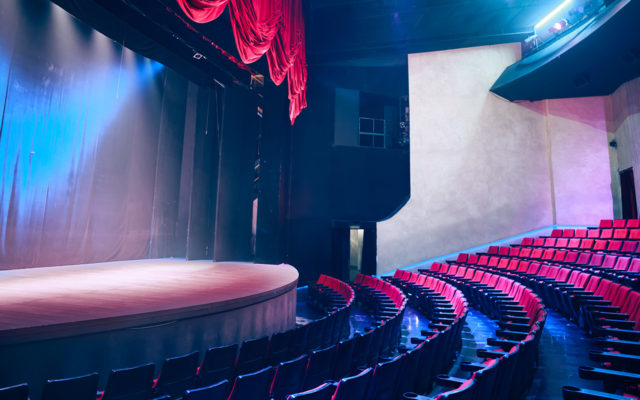London's West End stands as the pinnacle of theatrical excellence, hosting world-renowned productions in historic venues that attract millions of visitors annually. From the grandeur of the London Palladium to the intimate charm of the Donmar Warehouse, these premier venues face unique risks that require specialized insurance coverage. This comprehensive guide explores the critical insurance needs of West End theatres and how to protect these cultural treasures and the businesses that operate within them.
The West End Theatre Landscape
The West End encompasses over 40 professional theatres, each with distinct characteristics and insurance requirements:
Types of West End Venues
- Historic Theatres: Grade II listed buildings with heritage considerations
- Modern Venues: Purpose-built contemporary theatre spaces
- Multi-Use Venues: Spaces hosting theatre, concerts, and events
- Intimate Studios: Smaller venues for experimental and fringe productions
- Musical Theatres: Venues specifically designed for large-scale musicals
- Commercial Theatres: Privately owned venues hosting commercial productions
Essential Insurance Coverage for West End Theatres
Property Insurance
Critical for venue protection: West End theatres often occupy historic buildings with significant replacement values and unique architectural features.
Key coverage areas:
- Building structure and historic fabric
- Specialized theatre equipment and installations
- Seating, fixtures, and fittings
- Technical equipment and lighting systems
- Sound systems and recording equipment
- Costumes, sets, and production materials
- Heritage and listed building considerations
Public Liability Insurance
Essential for audience safety: With thousands of visitors daily, public liability coverage is crucial for West End venues.
Coverage includes:
- Audience injuries during performances
- Accidents in foyers, bars, and public areas
- Slip, trip, and fall incidents
- Food poisoning from venue catering
- Property damage to visitors' belongings
- Emergency evacuation incidents
- Coverage typically £5-20 million for major venues
Employers' Liability Insurance
Legal requirement: Mandatory coverage for all theatre employers, protecting against workplace injury claims.
Theatre-specific considerations:
- Performers and technical crew injuries
- Stage accidents and equipment-related injuries
- Repetitive strain injuries from performances
- Occupational health issues from stage environments
- Stress and mental health claims
- Minimum £5 million coverage required by law
Specialized West End Theatre Insurance
Production Insurance
Protecting the show: Comprehensive coverage for theatrical productions from rehearsal to closing night.
Coverage elements:
- Cast Insurance: Coverage for key performer illness or injury
- Abandonment Insurance: Protection against production cancellation
- Postponement Cover: Costs of delaying opening nights
- Set and Costume Insurance: Protection for production materials
- Equipment Breakdown: Technical equipment failures
- Weather Insurance: For outdoor or weather-dependent productions
Business Interruption Insurance
Income protection: Critical for venues with high fixed costs and seasonal revenue patterns.
Key benefits:
- Lost ticket sales and revenue
- Ongoing fixed costs during closure
- Additional expenses to minimize losses
- Extended indemnity periods for major damage
- Seasonal adjustment provisions
- Contingent business interruption for supply chain issues
Unique Risks Facing West End Theatres
Historic Building Challenges
- Heritage Constraints: Listed building restrictions on modifications
- Aging Infrastructure: Older electrical and mechanical systems
- Fire Risks: Historic buildings with limited fire protection
- Structural Issues: Settlement and deterioration concerns
- Accessibility Challenges: Compliance with modern accessibility standards
- Restoration Costs: Specialized materials and craftspeople required
Operational Risks
- High-Value Productions: Multi-million pound shows with significant investment
- Celebrity Dependency: Productions relying on star performers
- Technical Complexity: Sophisticated staging and special effects
- Tight Schedules: Limited time for technical rehearsals and setup
- Seasonal Variations: Peak and off-peak audience patterns
- Competition: Intense competition for audiences and talent
Risk Management Best Practices
Safety and Security Measures
- Fire Safety: Advanced detection and suppression systems
- Emergency Procedures: Regular evacuation drills and staff training
- Security Systems: CCTV, access control, and security personnel
- Health and Safety: Comprehensive risk assessments and protocols
- Technical Safety: Equipment inspections and maintenance programs
- Crowd Management: Effective queuing and audience flow systems
Production Risk Management
- Cast Understudies: Multiple performers trained for key roles
- Technical Redundancy: Backup systems for critical equipment
- Rehearsal Safety: Comprehensive safety protocols during preparation
- Medical Support: On-site medical facilities and trained personnel
- Weather Contingencies: Plans for adverse weather impacts
- Communication Systems: Effective internal and external communication
Choosing the Right Insurance Provider
Industry Expertise
Select insurers who understand the entertainment industry's unique challenges:
- Experience with theatre and entertainment claims
- Understanding of production and venue risks
- Knowledge of heritage building requirements
- Flexible policy terms for seasonal operations
- Competitive pricing for entertainment venues
Coverage Flexibility
- Scalable Policies: Coverage that adapts to different productions
- Seasonal Adjustments: Flexible coverage for varying schedules
- Multi-Venue Cover: Protection across multiple locations
- International Coverage: Protection for touring productions
- Event-Specific Insurance: Tailored coverage for special events


 0330 127 2333
0330 127 2333
